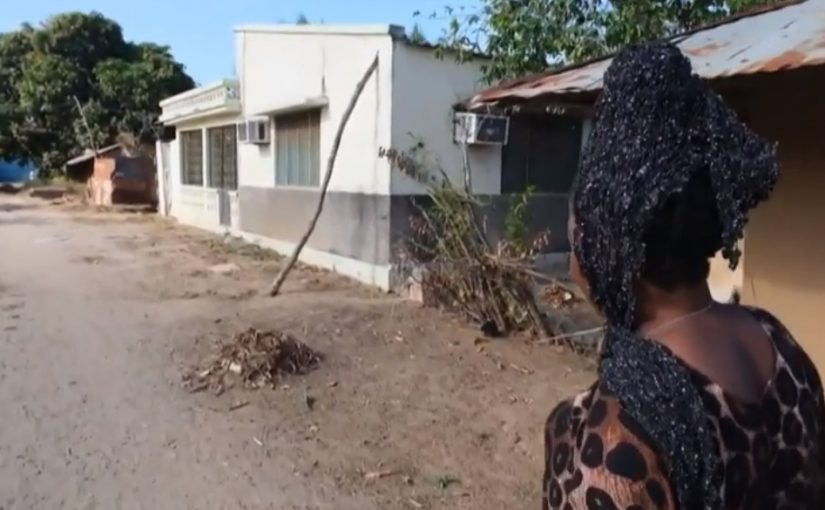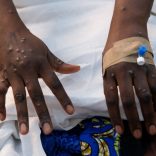Mozambique: Maputo province sees drop in scabies cases from August high of 11,400
Mozambique: Five years on, fear prevails among Cabo Delgado displaced – Watch | Lusa report

Screen grab : Lusa
In Metuge, the traumas of those who fled the barbarism of the rebels terrorising the Mozambican province of Cabo Delgado five years ago are still fresh and, despite efforts to restore stability, fear prevails in that community.
“Now, the terrorist is everywhere,” Abdul Arlindo, deputy head of the Metuge reception centre, one of the main places hosting displaced people, laments to Lusa.
A fear that persists, a perception that contrasts with the growing confidence of the authorities, who highlight never again having had large-scale attacks like the one in Palma in March 2021, and who highlight the external support that has reinforced the troops.
The authorities consider the structure of the insurgency to have been overcome and call for “vigilance” towards the remaining rebel groups, which are dispersed and on the run, attacking villages they pass through in the rest of the province – leaving their mark, evident in Abdul’s laments.
On 5 October it will be five years since the first attack, against police units in Mocímboa da Praia.
It was the beginning of a conflict that would spread throughout the province and that in 2021 would end up suspending the gas projects on which the country largely depends to revive the economy.
Five years of cruelty are etched on the faces and memories of thousands of displaced people in Metuge, a village on the edge of the bay of Pemba, the provincial capital, which is on the opposite side, 10 kilometres away by boat, or 40 kilometres by road.
Abdul Arlindo, 35 years old, is among the more than 30,000 people who have sought refuge there because of the armed incursions, in poverty, forced to live dependent on support.
“Our life boils down to waiting for support,” Bibiana Simão, 44, tells Lusa, who says she has never lost the will to return to her region of origin, in Quissanga district, from where she fled in 2020.
The authorities say that the residents of Palma and Mocímboa da Praia, the most important locations near the gas projects, can return and that public services are being restored.
However, at the same time, the reconquest has reoriented the movement of the rebels: since June they have intensified attacks in the south of Cabo Delgado province, closer to Metuge, and in neighbouring Nampula province.
“They have not yet directly entered the headquarters of Metuge”, but they are the main suspects of violent killings in surrounding land over the past few months.
Fear is spreading across land where the people have their agricultural fields.
“We are tired of the terrorists,” Ricardo Mendes,43, another displaced person welcomed in Metuge, told Lusa.
“Life is getting better, but with difficulties,” he says, acknowledging the work of the troops on the ground.
But with the report of new attacks, fear has increased again, bringing to light the traumas of those who witnessed the cruellest form of insurgency in northern Mozambique.
“It seems they are getting closer and closer to here,” Ricardo Mendes laments.
The fear of new attacks and the hunger that affects most of the families hosted in Metuge reinforce in many the desire to return home.
“In our community, we used to vary our diet, here we eat the same thing every day, rice and beans”, complains Graça João, another displaced person.
For over a year, the United Nations has been warning of serious underfunding of its agencies in Cabo Delgado, forcing them to ration food and other aid so that it lasts longer.
The coastal district has been, along with Pemba, one of the most burdened with displaced people seeking safety during the five-year insurgency.
There are about 800,000 internally displaced people due to the conflict, according to the International Organization for Migration (IOM), and 4000 deaths, according to the conflict registration project, ACLED.













Leave a Reply
Be the First to Comment!
You must be logged in to post a comment.
You must be logged in to post a comment.